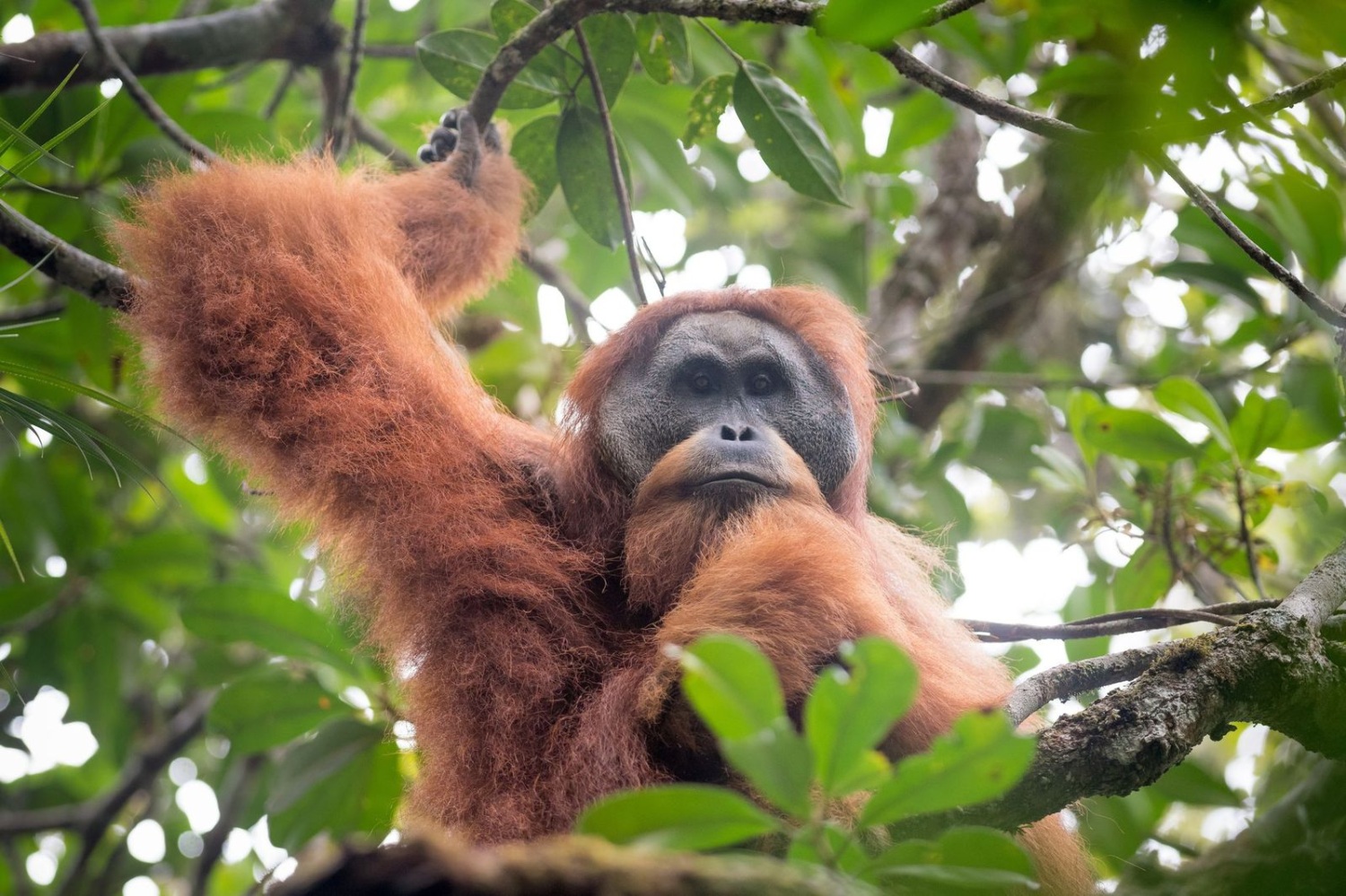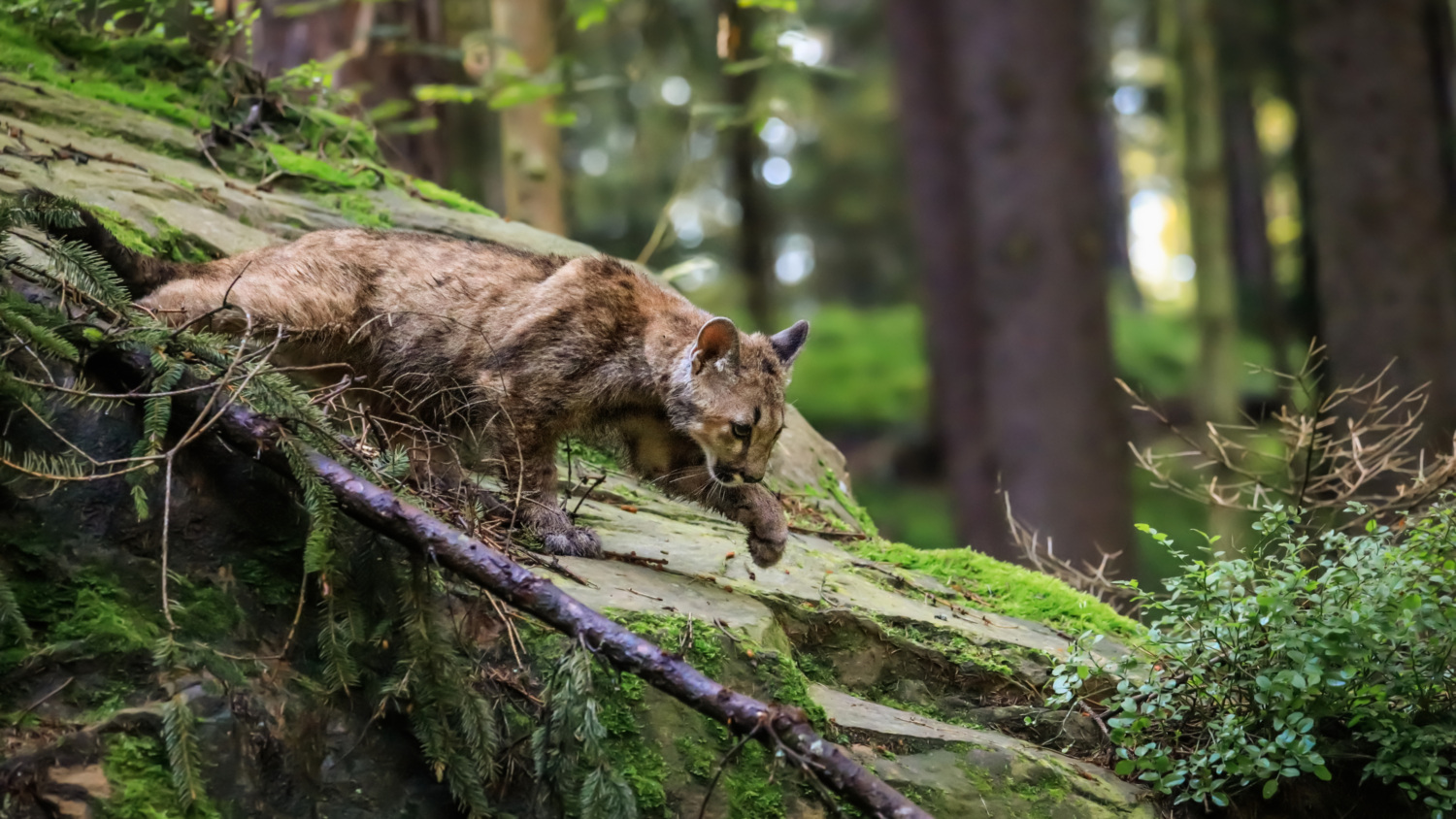
Red Rock Power “unfit” to benefit from future ScotWind licences over controversial dam project
Ministers urge developers to rethink Indonesian dam which threatens the world’s rarest great ape; Scottish subsidiary in spotlight
Pressure is growing on Chinese developers SDIC Power, which owns Edinburgh-based Red Rock Power, to abandon a controversial dam project in Indonesia which threatens the world’s most endangered great ape, the Tapanuli orangutan. Following a letter from Scottish Ministers urging SDIC to reconsider the project, and pressure on the company to meet international scientists, environmental organisation Mighty Earth is today pressing for wind farm developers Red Rock Power to be excluded from future rounds of renewable leasing in Scotland unless the Batang Toru dam project is stopped.
The letter to Red Rock Power, sent by Lorna Slater MSP, then Minister for Green Skills, Circular Economy and Biodiversity, raises concerns about the impacts of the dam, which is subject to a moratorium by the International Union for Conservation of Nature (IUCN). Construction threatens not only the Tapanuli orangutan, of which fewer than 800 remain, but also the lives and livelihoods of those who live in the unique Batang Toru ecosystem in North Sumatra.
Mighty Earth has today contacted Màiri McAllan MSP, Cabinet Secretary for Net Zero and Energy, offering to work with the Scottish Government to implement tighter restrictions on which companies can bid for new renewable leases whilst expanding green energy generation as part of a just transition.
Nick Cullen, Scottish Campaign Lead at Mighty Earth, said:
“Scotland’s urgent renewable energy transition can be delivered without benefiting corporations that pose a threat to global biodiversity and human rights. Red Rock Power will remain unfit to bid for new wind farm leases until its parent company, SDIC, abandons this dam project and the Tapanuli orangutan’s survival is secured.”
“We welcome the Scottish Government’s strong stance on this ill-conceived and unnecessary dam, built across the little remaining habitat of the Tapnanuli orangutan. We will now seek to work with Scottish Ministers to ensure profits from future renewable licences don’t go to corporate groups involved in damaging projects around the world. We believe that this policy change would secure widespread support across the Scottish Parliament.
Andi Muttaqien, of Indonesian NGO Satya Bumi, said:
“I never expected, when we first raised concerns about this project, that it would become a focus of attention in Scotland, 7,000 miles from Indonesia. This has now become a truly global issue, and international attention is essential if we are to make progress on protecting the Tapanuli orangutan, alongside all the other species and habitats this project threatens.
“The Batang Toru dam is a serious threat to local communities and workers. It sits on the Ring of Fire, which is vulnerable to earthquakes and landslides, and construction has already caused the deaths of 18 people. For that reason we are extremely pleased to see human rights in focus in the Scottish renewables sector. For that to be extended to the environmental record of corporate groups bidding for licences of this sort around the world would be major progress.”
Professor Erik Meijaard, international conservation scientist, said:
“The Tapanuli orangutan is the most endangered great ape species in the world. It only survives in about 5% of its historic range, mostly under ecological conditions at higher elevation that are not optimal for its survival. Recent analyses show that deforestation by mining, dam development and smallholder agriculture is ongoing and particularly affecting the ecologically more valuable lowland parts of the species’ range.
“With only a few hundred individuals remaining, there really is no room for error and all efforts should be made to halt this ongoing ecocide. That must include stopping all major developments and reversing the impacts these have had on Batang Toru’s forests. Scottish businesses should indeed have no role to play in the extinction of great apes.”
Red Rock Power, which is involved in several large wind farms across Scotland, bid unsuccessfully to build new developments through the £755m ScotWind leasing process in 2021. Scotwind currently only requires applicants to confirm that they have not been“convicted of unlawful activity in relation to corruption, bribery, human trafficking, and a number of other activities, within the last five years.”
However, the separate 2023 INTOG renewables leasing round went much further, also requiring commitments covering group companies and supply chain partners, and those requirements were extended to include human rights more generally, as follows:
“[Applicants] are also required to make specific commitments ensuring that they, their group companies, and their supply chain partners have the appropriate policies and mechanisms in place regarding human rights.”
Mighty Earth believes this broader group responsibility should also apply to future rounds of Scotwind and other public sector renewables leasing. Corporate groups wishing to profit from the energy transition should be required to meet a suitable level of both environmental and human rights standards across their global operations.
Contact:
Nick Cullen


